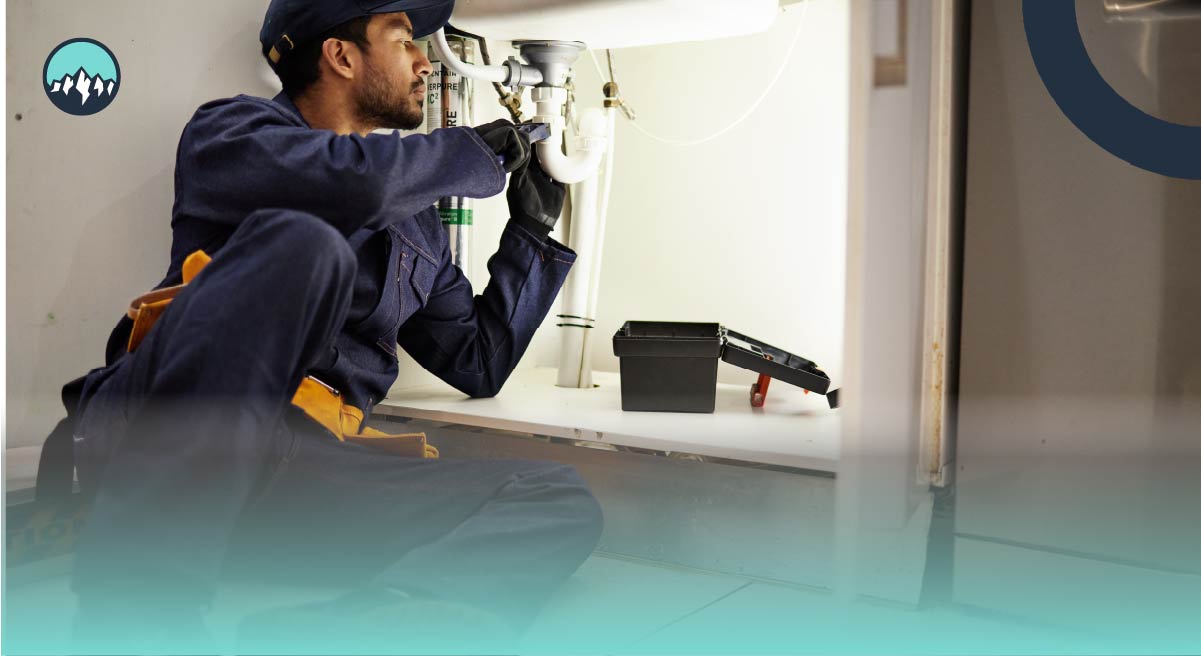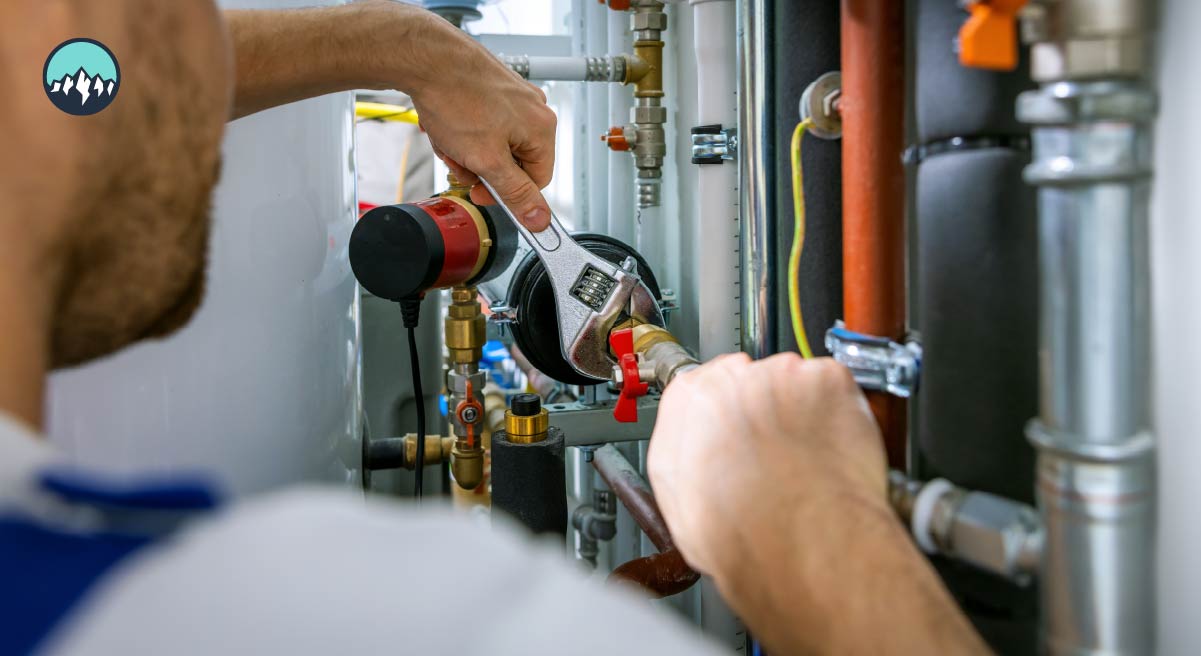Immigrate to Canada as a Plumber
06 Nov 2024

Canada is a popular destination for skilled tradespeople, and plumbers are in high demand nationwide. If you are a plumber considering a move, there are multiple pathways to immigrate, from temporary work permits to Canadian permanent residency options. The Canadian government recognizes the importance of skilled workers in sectors like plumbing, offering various immigration programs to help you transition.
We take you through the steps to immigrate to Canada as a plumber, including the necessary qualifications, licensing requirements, and available job opportunities.
Why Canada Needs Plumbers?

A career move to Canada might be your best decision. The country just needs skilled plumbers right now. With 700,000 professionals retiring by 2028, the skilled trades workforce faces a considerable gap. The construction industry makes up 8% of Canada's GDP and has 80,000 job openings nationwide. Skilled trades workers, including plumbers, need to fill half these positions. This is not just a future problem - it is already slowing economic growth and pushing higher costs.
The lack of qualified plumbers disrupt Canadian society in several ways:
- Projects with solid infrastructure face delays,
- Housing becomes more challenging to find and afford,
- Service costs keep rising, and
- People wait longer for plumbing services.
Canadian employers value plumber skills more than ever. The Canadian Mortgage and Housing Corporation estimates that Canada must build 3.5 million homes by 2030 to make housing affordable again. This creates perfect conditions for skilled plumbers to move to Canada and build successful careers. Today's plumbing careers offer clean, tech-savvy workplaces with rock-solid job security. Population growth and aging infrastructure also drive up the need for plumbing jobs in Canada. Plumbers can find work in home construction, commercial projects, or renovation services.
Immigration Pathways for Plumbers
Qualified plumbers can choose from several pathways to immigrate to Canada. Each program is a chance to match your qualifications with your preferred Canadian destination.
Federal Skilled Trades Program
The Federal Skilled Trades Program (FSTP) is the main pathway to permanent residence through Express Entry. Applications usually take six months to process, and you might receive an Invitation to Apply (ITA) with Comprehensive Ranking System (CRS) scores as low as 199 points. A valid job offer or provincial certification will boost your application. The FSTP uses the Express Entry system and provides the quickest way for skilled plumbers to move to Canada.
Provincial Nominee Programs
Many provinces have unique immigration streams for plumbers through their Provincial Nominee Programs (PNPs). Getting a provincial nomination adds 600 points to your CRS score. This is a big deal as it means your chances of receiving an ITA improve significantly. The central provinces that welcome plumbers via PNPs are outlined in the table below.
| Canadian Provinces or Territories | PNP Streams, Categories, Pilots and Pathways For Plumbers |
|---|---|
| Ontario | Express Entry Skilled Trades Stream |
| British Columbia | Skilled Worker Category |
| New Brunswick | Skilled Worker Stream |
| Express Entry Stream | |
| Yukon | Critical Worker Category |
| Northwest Territories | Skilled Workers Program |
| NWT Express Entry | |
| Prince Edward Island | PEI Express Entry Stream |
Atlantic Immigration Program
The Atlantic Immigration Program is a great way for people who want to settle in Atlantic Canada to get permanent residence. You need a job offer from a designated employer in:
- New Brunswick,
- Nova Scotia,
- Prince Edward Island, and
- Newfoundland and Labrador.
This employer-driven program has lower language requirements (CLB 4) and more straightforward application steps. You can submit your Canadian work permit and permanent residence applications together, which lets you start working while your permanent residence application moves forward. Your Canadian employer will create personalized settlement plans that help your family settle smoothly in the new community.
Qualifications and Requirements for Plumbers in Canada

Plumbers need specific qualifications to start their career in Canada. Here is everything you need to know about becoming a plumber when immigrating to Canada.
Educational Background
A high school diploma or equivalent starts your trip into this field. The FSTP does not mandate higher education requirements, but a pre-apprenticeship training program from a credible institution can substantially boost your prospects. This training gives you fundamental knowledge in plumbing theory, building codes, and blueprint reading.
Work Experience
Qualifying for immigration through FSTP requires at least two years of full-time work experience in the five years before your application. Your work must align with the National Occupational Classification (NOC) code requirements for plumbers. You should have proper qualifications to practice plumbing in the country where you gained experience.
Certification and Licensing
Canadian provinces and territories have different certification requirements. Trade certification is mandatory in these regions:
- Nova Scotia,
- Ontario,
- Alberta,
- New Brunswick,
- Saskatchewan, and
- Prince Edward Island and Quebec.
The Red Seal endorsement is a prestigious certification that enables professionals to work anywhere in Canada. Professionals who earn this certification prove their expertise and often earn higher salaries.
Language Proficiency
Plumbers in Canada must demonstrate proficiency in either English or French. You need to:
- Take approved language tests for reading, writing, listening, and speaking,
- Meet the minimum Canadian Language Benchmark (CLB) score of 4 in all sections, and
- Ensure your test results remain valid for two years after the test date.
Knowing how to communicate effectively is significant because you regularly interact with customers and colleagues while working in Canada's plumbing sector.
Steps to Immigrate to Canada as a Plumber

Your journey to immigrate to Canada as a plumber needs proper planning and attention to detail. We will help you understand everything you need to turn your Canadian dream into reality.
Step 1: Assess Eligibility
The FSTP requires you to meet several simple requirements. Your work experience should include at least two years of full-time work in the last five years. The program demands a minimum Canadian Language Benchmark (CLB) score of 4 across all categories. Your NOC code must align with plumbing occupation requirements, and you should have enough funds to support yourself and your family.
Step 2: Gather Required Documents
Your immigration application needs everything in this document checklist:
- Valid passport and travel documents,
- Language test results, e.g., International English Language Testing System (IELTS) or Canadian English Language Proficiency Index Program (CELPIP),
- Educational Credential Assessment (ECA) reports,
- Reference letters from previous employers,
- Provincial certification or job offer letters,
- Police clearance certificates,
- Medical examination results, and
- Proof of funds.
Step 3: Choose An Immigration Program
Your qualifications and circumstances will determine the best pathway to immigrate to Canada. The FSTP provides the most direct route. PNPs could work better if you have a specific province where you want to settle. Your detailed CRS score will help you pick the program that matches your profile.
Step 4: Submit Application
Start by creating your Express Entry profile on the Canadian government site. Make sure your information is accurate and complete. The next step requires you to upload documents before deadlines and submit processing fees. Your online account lets you quickly track the application status and respond to requests.
Step 5: Prepare For The Move
After receiving approval, start planning your relocation journey. Look into housing options in your preferred community and work with provincial authorities to recognize your credentials. Build relationships with local plumbing associations and consider joining professional networks - research job opportunities before you arrive to make your transition into the Canadian workforce smooth and successful.
Job Prospects and Salary for Plumbers in Canada
Canada's plumbing industry offers excellent career paths with promising growth. Plumbers' skills are just needed everywhere in the country. The sector will create 12,600 new job openings by 2031.
High Growth Regions
These regions offer excellent opportunities for plumbers:
- British Columbia leads with its booming construction sector,
- Saskatchewan shows steady construction growth throughout Regina,
- Manitoba attracts plumbers with its major infrastructure projects,
- Ontario remains the top employer with the most plumbing positions, and
- Atlantic provinces face critical shortages of skilled workers
Average Salaries
Canadian plumbers earn competitive salaries nationwide. A plumber's annual average salary in Canada, according to Talent.com, stands at 43.07 CAD per hour or 83,965.33 CAD. Each province offers different annual average salaries, as highlighted in the table below with figures from Talent.com.
| Canadian Provinces or Territories | Annual Average Salaries (CAD) |
|---|---|
| Northwest Territories | 111,945.02 |
| Nunavut | 110,691.47 |
| Yukon | 101,573.79 |
| British Columbia | 99,219.36 |
| Ontario | 98,376.21 |
| Manitoba | 97,456.66 |
| Alberta | 96,738.53 |
| Saskatchewan | 93,565.95 |
| Quebec | 92,093.57 |
| Nova Scotia | 75,925.10 |
| Prince Edward Island | 74,487.44 |
Job Outlook
Canada's plumbing sector offers you a bright future. The industry faces a critical labor shortage that will likely continue through 2031. Here is what you just need to know:
- 91% of plumbing jobs are in the construction sector,
- 94% of positions are full-time opportunities,
- Population growth creates more residential construction needs,
- Infrastructure investments drive municipal systems, and
- Water-efficient plumbing systems see rising demand.
The construction industry grows steadily, and infrastructure development creates ongoing opportunities to immigrate to Canada through the FSTP. Your employment prospects look better, especially with additional certifications like a gas fitter's certificate.
FAQs
Can I Move to Canada During My Plumbing Apprenticeship, or Should I Wait Until I am Licensed?
The specifics of when you can move to Canada during your plumbing career, whether during an apprenticeship or after obtaining a license, can depend on the immigration program and the regulations of the province you intend to move to.
Is it Necessary to be Fluent in French to Work as a Plumber in Montreal, Canada?
While fluency in French is highly beneficial, especially in Montreal, it is not always a strict requirement. You can move and start working while continuing to learn the language, but some proficiency will likely be necessary for communication and professional integration.
Are There Any Quebec-specific Regulations For Plumbers I Should Be Aware of?
Quebec may have specific requirements and regulations for plumbers, particularly regarding language proficiency and certification standards. Researching these specifics or consulting with someone in the industry within the province for detailed guidance is advisable.




